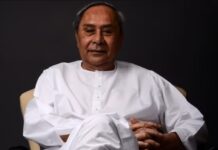A weekly column on human psychology, youth & leadership with Dr. Debilal Mishra
We are living in a dynamic world with changes happening every moment. Given the prevalent nature of our lives and goals, a positive leadership is the need of the hour. Today in the column “Finding Hope with DLM” we would be discussing various aspects and issues of leadership.

How do you define leadership?
Leadership is a process of achieving certain goals that involves leading someone to their real potential and making them realize their strengths by creating inspiring examples. Leadership is always a skill-driven and goal-oriented exercise. A leader is someone who can inspire and motivate some people towards a common goal irrespective of the inherent individual differences in them.
How can one become a leader?
A very good question, indeed! A leader is born out of a natural will to handle responsibilities, share burdens and create a difference in whatever he/she undertakes. A good leader is always a wonderful learner. A leader learns to lead. He/she loves to know their people and the realities they are made of. A leader is ever full of patience, passion and positivity. He/she believes in creating some great vibes around through great degrees of commitment, dedication, emotional intelligence and core involvement in the situation. A leader is never a fearmonger; rather his/her presence eases out fear and creates a climate of trust and confidence. Just try to reflect on the qualities of some of the great global leaders like Mahatma Gandhi, Swami Vivekananda, Nelson Mandela, Abraham Lincoln etc.

What is the biggest asset of a leader?
The biggest asset is definitely the character! If the character of a leader is positive and inspiring, he/she is perceived as a role model. Then things become much easier. ‘Trusting the leader’ is very vital. But this trust can neither be commanded nor, manufactured. It can only be earned by the beauty of character. A leader needs to take care of every little thing that counts. They can do so only when they work without their ego and negative emotions.
What are the biggest challenges before a leader?
Working together is never an easy experience since everyone is unique as regards their perception, personality and performance. Understanding everyone’s mind and emotions is what empowers a leader to a great extent. Sometimes the leader has to make some sacrifices on certain personal/behavioural levels and change and adjust to the prevailing situation. If a leader can’t change his/her behaviour in the larger interest, he/she can never motivate people to perform on the desired scale.

In this context we need to understand the Goal Theory!
— A positive leader can lead some negative people, whereas a negative leader can’t ever lead some positive people.
– A positive leadership creates a positive goal, whereas a negative leadership creates a negative goal which doesn’t help anyone ultimately.
— The Positive Goal can be achieved only if the leadership is positive. There is no other way out!
What are the qualities of a great/positive leader?
I think we have discussed that. Simply put, it takes charge, courage, knowledge and message to be a great leader. You must be willing to take charge of a responsibility. Try to be courageous enough to handle it to the goal. You must know who you are working with, their strengths and weaknesses and manage them accordingly.
And more importantly, you should send your message through your performance involving an inspiring character. We must remember the greatest achievement of a leader is to create another leader of the same or even greater character. And this can be possible only when you as a leader can be able to create such an inspiring character in yourself.
(Dr. Debilal Mishra, is a communication specialist currently working at Ravenshaw University, Cuttack Odisha as Assistant Prof., Dept. of Journalism and Mass Communication)

























